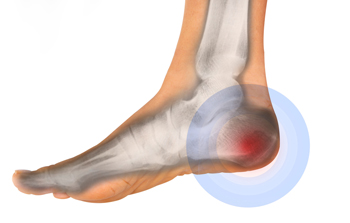
Foot development in babies and toddlers follows a natural progression as they grow and begin to explore their environment. At birth, a baby’s feet are soft, flat, and mostly cartilage, with arches not yet fully formed. As babies start crawling and pulling up to stand, their feet strengthen and begin to take shape. During this stage, barefoot time is ideal for natural development and balance. When toddlers begin walking, soft-soled shoes that allow for flexibility and movement are recommended to protect the feet without restricting growth. As walking becomes more steady, supportive shoes with non-slip soles help provide stability. It is important to choose shoes that fit properly, offer enough room for the toes, and do not interfere with the natural growth and development of the feet. If you have concerns about your child’s foot development, it is suggested that you consult a podiatrist who can address any questions you may have.
The health of a child’s feet is vital to their overall well-being. If you have any questions regarding foot health, contact Dr. Douglas Mckay of New Jersey . Our doctor can provide the care you need to keep you pain-free and on your feet.
Tips for Keeping Children's Feet Healthy
- Make sure their shoes fit properly
- Look for any signs of in-toeing or out-toeing
- Check to see if they have Clubfoot (condition that affects your child’s foot and ankle, twisting the heel and toes inward) which is one of the most common nonmajor birth defects.
- Lightly cover your baby’s feet (Tight covers may keep your baby from moving their feet freely, and could prevent normal development)
- Allow your toddler to go shoeless (Shoes can be restricting for a young child’s foot)
- Cut toenails straight across to avoid ingrown toenails
- Keep your child’s foot clean and dry
- Cover cuts and scrapes. Wash any scratches with soap and water and cover them with a bandage until they’ve healed.
If you have any questions, please feel free to contact one of our offices located in Caldwell, and Galloway, NJ . We offer the newest diagnostic and treatment technologies for all your foot care needs.

Selecting the proper shoes for marathon running is essential to ensure comfort, performance, and injury prevention. The ideal running shoe should match your foot type, gait, and running style. It is important to choose a shoe that offers adequate cushioning to absorb impact while providing support and stability over long distance. Trying on shoes later in the day, when feet are slightly swollen, can give a more accurate fit. A snug but not tight fit is key, with enough room in the toe box to accommodate foot movement. Prioritizing comfort and function over style will help you stay focused on your training. If you are considering running in a marathon, it is suggested you confer with a podiatrist who can help you choose shoes that are right for you.
If you are a runner, wearing the right running shoe is essential. For more information, contact Dr. Douglas Mckay from New Jersey . Our doctor can provide the care you need to keep you pain-free and on your feet.
Choosing the Right Running Shoe for Your Foot Type
To increase performance and avoid the risk of injury, it is important to choose the right running shoe based on your foot type. The general design of running shoes revolves around pronation, which is how the ankle rolls from outside to inside when the foot strikes the ground.
- Neutral runners are able to choose from a wide variety of shoes, including minimalist shoes or even going barefoot.
- Runners who overpronate, or experience an over-abundance of ankle rolling, should choose shoes that provide extra motion control and stability.
- Runners who underpronate, or supinate, have feet that have high arches and lack flexibility, preventing shock absorption. They require shoes with more flexibility and cushion.
If you have any questions please feel free to contact one of our offices located in Caldwell, and Galloway, NJ . We offer the newest diagnostic and treatment technologies for all your foot and ankle needs.

A broken heel bone, or calcaneus fracture, is a serious foot injury that often results from high-impact trauma, such as falling from a height or being in a car accident. In some cases, athletes who engage in repetitive stress, like long-distance running, may develop a stress fracture in the heel. Signs of a broken heel bone include intense heel pain, swelling, bruising, and an inability to walk. A podiatrist will perform a thorough exam, which may include imaging tests, to determine the severity of the fracture. If the bone fragments remain in proper position, casting and immobilization may be sufficient. However, when the bone is significantly displaced or if the fracture is open, surgery may be necessary. This typically involves repositioning the bone and securing it with plates and screws. In the most severe cases, a fusion between the heel and ankle bones may be required to stabilize the foot. If you have extreme heel pain and fear it may be broken, it is suggested that you make an immediate appointment with a podiatrist for an exam, diagnosis, and appropriate treatment.
Many people suffer from bouts of heel pain. For more information, contact Dr. Douglas Mckay of New Jersey . Our doctor can provide the care you need to keep you pain-free and on your feet.
Causes of Heel Pain
Heel pain is often associated with plantar fasciitis. The plantar fascia is a band of tissues that extends along the bottom of the foot. A rip or tear in this ligament can cause inflammation of the tissue.
Achilles tendonitis is another cause of heel pain. Inflammation of the Achilles tendon will cause pain from fractures and muscle tearing. Lack of flexibility is also another symptom.
Heel spurs are another cause of pain. When the tissues of the plantar fascia undergo a great deal of stress, it can lead to ligament separation from the heel bone, causing heel spurs.
Why Might Heel Pain Occur?
- Wearing ill-fitting shoes
- Wearing non-supportive shoes
- Weight change
- Excessive running
Treatments
Heel pain should be treated as soon as possible for immediate results. Keeping your feet in a stress-free environment will help. If you suffer from Achilles tendonitis or plantar fasciitis, applying ice will reduce the swelling. Stretching before an exercise like running will help the muscles. Using all these tips will help make heel pain a condition of the past.
If you have any questions please contact one of our offices located in Caldwell, and Galloway, NJ . We offer the newest diagnostic and treatment technologies for all your foot and ankle needs.


